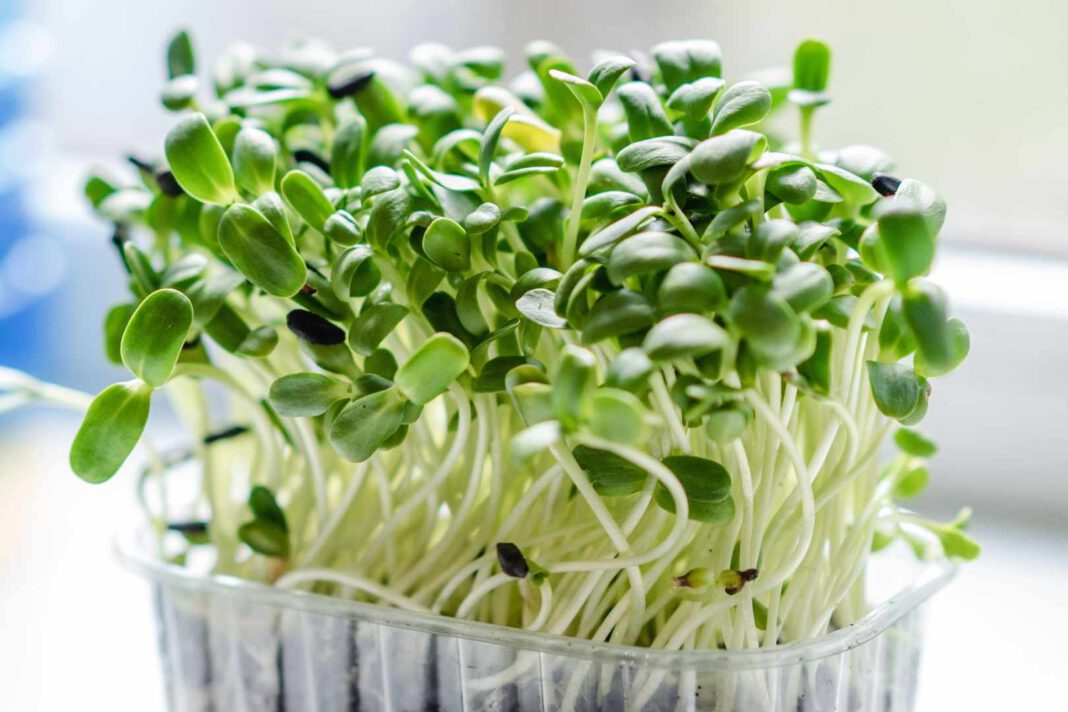Sprouts - types and properties. Which are considered the healthiest ?
Contents:
Although the properties of sprouts have been appreciated in the world for centuries, apart from the tradition of sowing cress around Easter, they have not been popular for a relatively long time. They first appeared in cooking in the 1990s. Today we know that they are not only healthy, but also delicious and really worth eating. But are they all equally valuable? What are the differences, which are considered the healthiest and what properties do they have?
Properties of Sprouts
Sprouts are a source of many valuable nutrients, vitamins and minerals. They provide our body with vitamins A, C, E, K and B, as well as magnesium, potassium, iron, zinc and phosphorus. The antioxidant compounds contained in sprouts help reduce the harmful effects of free radicals. Everyone, regardless of age, should eat sprouts regularly, especially people who suffer from vitamin and mineral deficiencies and anemia. They help regulate bowel function, support weight loss and strengthen the immune system. They are low in calories, easy to digest and provide plenty of fiber, which helps prevent constipation.
The most popular types of sprouts
- sunflower sprouts - are a source of copper, zinc, potassium, iron and phytosterols, which help control the body's fat metabolism. Compared to other sprouts, they are quite thick and juicy. They are a little spicy and have a nutty taste. They are an excellent addition to many dishes, salads or simple sandwiches. Due to their high iron content, they are particularly recommended in vegetarian and vegan diets.
- Alfalfa sprouts - are a valuable source of vitamins, especially vitamin B, minerals and phytoestrogens, which, among other things, have a supportive effect in relieving menopausal symptoms. They are tender, slightly sweet and do not have a sharp taste compared to other sprouts.
- radish sprouts – are a source of vitamins A, C, E, as well as B vitamins, including folic acid. They contain unsaturated fatty acids, as well as glucosinolates and sulfur. They have a characteristic, slightly pink-green color. They taste spicy, spicy and quite burning, like a ripe radish.
- Broccoli sprouts - in addition to vitamins A, C and group B and minerals such as calcium, magnesium and selenium, they also contain lutein, unsaturated fatty acids and sulforaphane, which has, among other things, a detoxifying effect. The taste of broccoli sprouts is similar to that of a fully grown plant.
- mung bean sprouts – have a high content of vitamin K and C as well as calcium, iron, potassium, magnesium, phosphorus and copper . They are a valuable source of antioxidants. They are very popular in Asian cuisine. Their taste is relatively neutral, slightly sweet. They are thick, very juicy and crispy. Unlike other sprouts, they are also eaten warm and fried in a pan.
- cress – contains vitamins A, C, PP and K as well as B vitamins. It is a valuable source of iron, magnesium and calcium. It has an intense, spicy taste and a specific smell.
Which sprouts are the healthiest?
In fact, they are all healthy and there is no clear answer to this question. Everyone can choose those that are most suitable for them based on their properties and taste.
- alfalfa sprouts help combat menopausal symptoms. They have a positive effect on the digestive system, prevent pancreatic diseases, heart disease and osteoporosis and strengthen muscles, teeth and bones. They are recommended for people with concentration problems as well as pregnant and breastfeeding women.
- Radish sprouts - they are good for colds. They provide a lot of vitamin C and help to cleanse the respiratory tract and sinuses thanks to their expectorant effect. They strengthen the body's immunity and, thanks to the sulfur content, improve the appearance of hair and nails.
- Sunflower sprouts strengthen bones and teeth and also have a positive effect on the metabolism.
- Mung bean sprouts are a rich source of easily digestible protein. They are recommended in vegetarian and vegan diets, among others.
Undoubtedly, it is worth including sprouts in your daily diet. They are easily available and can also be grown yourself. They go well with most dishes, as an addition to sandwiches, salads, salads, cottage cheese, groats, rice. You can also sprinkle them on potatoes. It is best to eat them raw, as this preserves the most valuable ingredients.

















Leave a comment
Please note that comments must be approved before publication.